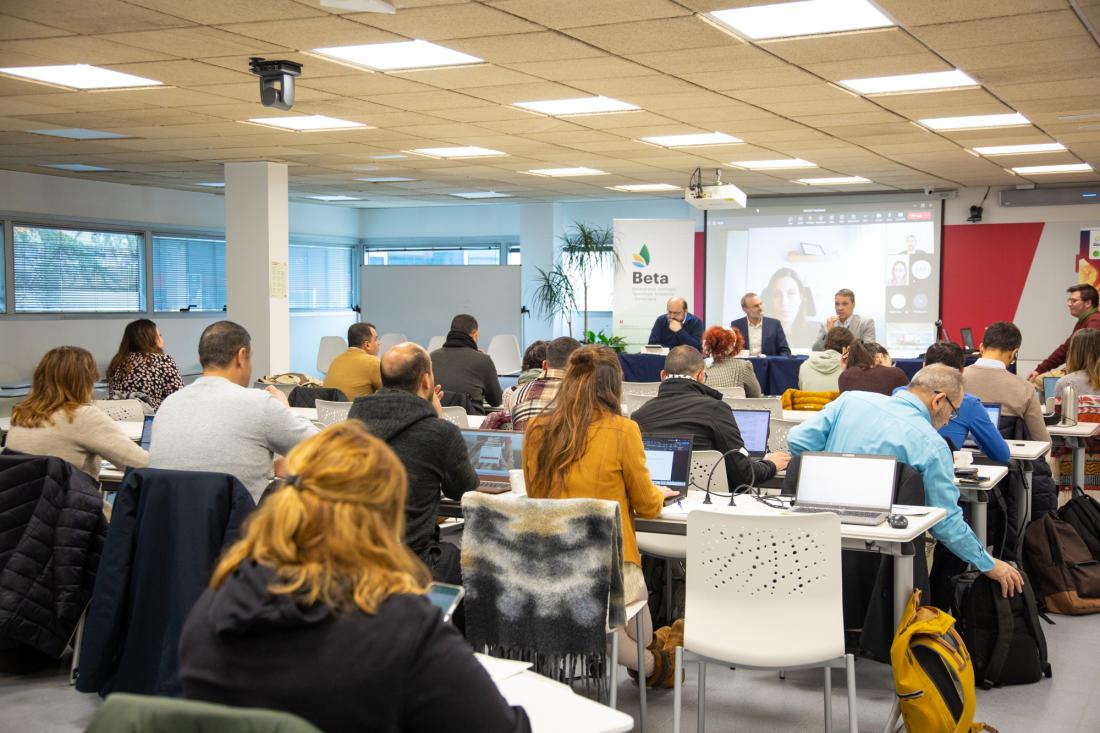The experience of DECOST in waste management presented at Med4Waste capitalisation event

A debate on various experiences and pilot tests on the incorporation of composting as the main technology for the management of organic waste was the epicentre of the conference that the BETA Technology Centre of the University of Vic – Central University of Catalonia (UVic -UCC) organised in Vic this march. The event, which took place in the framework of the Med4Waste project, has served to meet a wide representation of projects that are working in the north and south of the Mediterranean to incorporate new models of municipal organic waste management. These projects, funded by the ENI CBC Med programme, are DECOST, CLIMA, MEDINA, REUSEMED and SIRCLES.
Med4Waste is a capitalisation project that aims to promote innovative practices, with a focus on preventing and reducing waste generation, circular economy practices and organic waste management. Med4Waste also provides guidance and training for public administrations and stakeholders in the Mediterranean region, helps disseminate key results, promotes networking and fosters long-term commitment to sustainable growth.
Inventory of good practices
The event has allowed to give voice to a series of pilot experiences that have served to assess the potential of incorporating composting in the dynamics of the collection and management of municipal organic waste in Mediterranean villages. The main content of the conference was provided by the DECOST project partners, who presented the results obtained after the implementation of several variants of community composting in Catalonia, Jordan, Palestine and Italy. From Catalonia, the SIRCLES project, coordinated by the ARC and which is also testing some variants of the same system, was also present.
The group of participants, both on-site and online, provided the opportunity to compare the reality of similar systems in countries with very different realities, and to present the positive impacts of the new waste management models in different contexts, the barriers and difficulties that the economic and technical viability of the pilots have had to overcome and whether they have had to face administrative difficulties.







